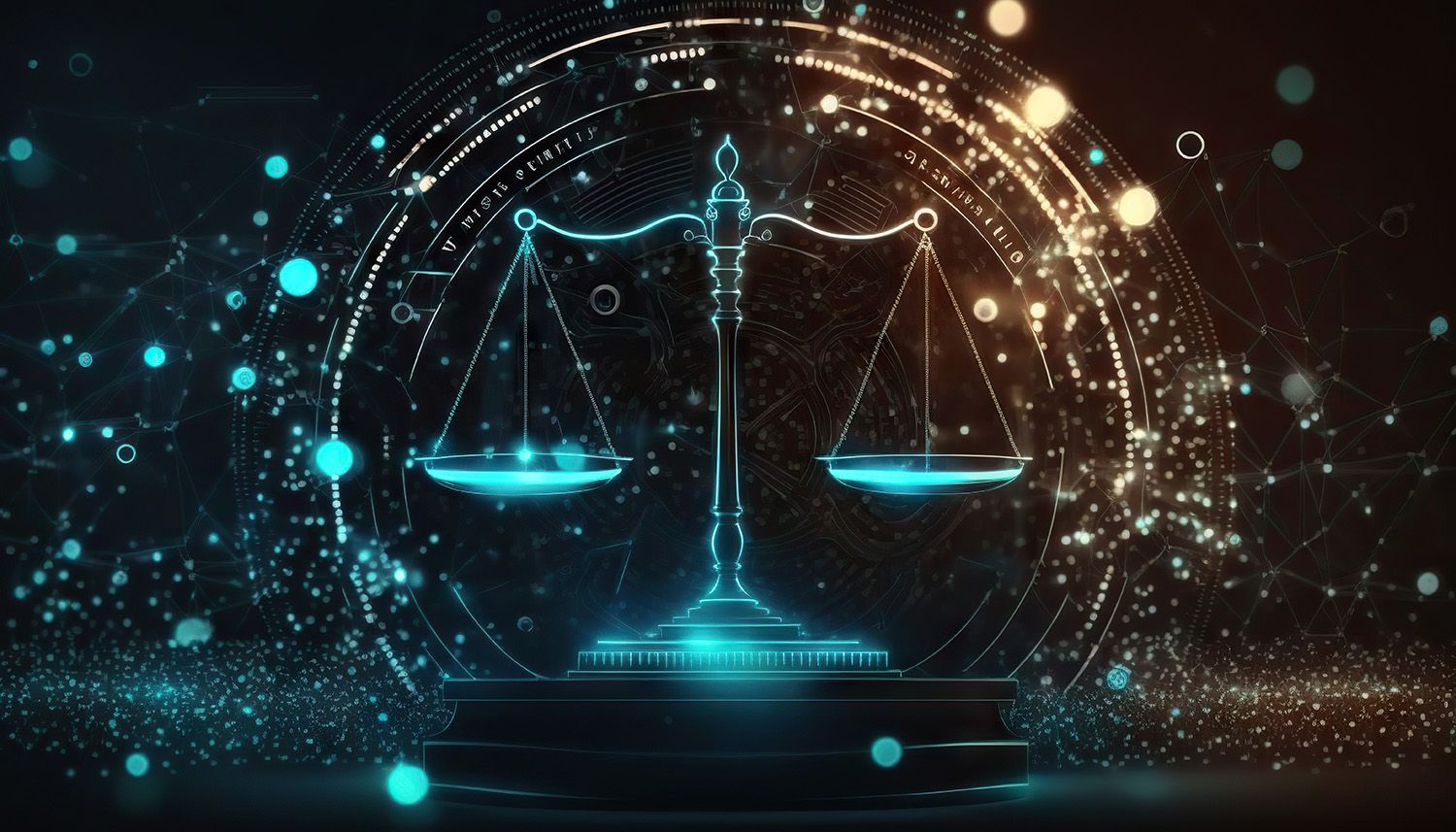FEATURE ARTICLE: ABA Formal Opinion 513: The Lawyer’s Duty of Investigation
Author: Professor Michael H. Hoeflich, PhD, Editor-in-Chief
Legal Editor: Carrie E. Parker; Design & Publishing Editor: Matthew T. Stephens
This article is featured in Volume 5, Number 10 of the Legal Ethics and Malpractice Reporter, published October 31, 2024.
Introduction
On August 24, 2024, the ABA Committee on Ethics and Professional Responsibility issued Formal Opinion 513 to provide guidance for lawyers about how to comply with newly revised Model Code Rule 1.16. The opinion makes it clear that compliance with the newly revised Rule 1.16 and other ethical rules required lawyers to make an investigation—in some cases substantial investigation—into a client’s activities and plans:
A duty to inquire into and assess the facts and circumstances of a representation has long been implicit in the ABA Model Rules of Professional Conduct. Rule 1.2(d) requires a lawyer to inquire into and assess the facts of each representation to avoid advising or assisting a client in conduct the lawyer knows to be criminal or fraudulent; similarly, depending on the facts and circumstances, other Rules may also require inquiry and assessment to satisfy the lawyer’s duty of competence under Rule 1.1, the duty of diligence under Rule 1.3, the duty to communicate under Rule 1.4, the duty to protect the best interests of an organizational client under Rule 1.13, the duties of honesty and integrity under Rules 8.4(b) and (c), and the duty to withdraw under Rule 1.16(a). In August 2023, this previously implicit duty to inquire and assess the facts and circumstances of a representation was made explicit by amendments to Rule 1.16.
Do All Lawyers Have a Duty to Investigate?
It is not insignificant that the opinion uses the phrase “made explicit.” This would suggest that even in jurisdictions that have not accepted the 2023 amendments to Rule 1.16, some degree of investigation is required by lawyers.
While the original purpose for Rule 1.16 was to combat lawyers’ aiding clients in money laundering or terrorism, Formal Opinion 513 explains the rule’s reach is far broader under the amended text and comments—especially Comment 1:
The amendments to Rule 1.16 changed both the text of the Rule and its Comments. First… paragraph (a) of the Rule, which addresses when a lawyer must decline or withdraw from a representation, was amended to incorporate existing guidance regarding its application. The text of the Rule now explicitly requires a lawyer to (1) inquire into and assess the facts and circumstances of each representation to determine whether the lawyer may accept or continue the representation; and (2) reject or discontinue the representation if the client or prospective client seeks to use or persists in using the lawyer’s services to commit or further a crime or fraud, despite the lawyer’s discussion with the client pursuant to Rules 1.2(d) and 1.4(a)(5) regarding the limitations on the lawyer assisting with the proposed conduct. These obligations were detailed in ABA Formal Opinions 463 and 491.
Second, the Comments to Rule 1.16 were amended to elaborate on a lawyer’s obligation to inquire into and assess the facts and circumstances of the representation. Comment [1] makes clear that the duty is one that continues throughout the course of the representation, and Comment [2] provides guidance on conducting the required inquiry and assessment.
Third, as revised, Model Rule 1.16 does not alter either Model Rule 1.2(d) or Model Rule 1.16(b). Model Rule 1.2(d) continues to prohibit counseling or assisting a client in conduct that the lawyer knows is criminal or fraudulent. Rule 1.16(b)(2) continues to permit a lawyer to withdraw from a current representation if the lawyer reasonably believes that the lawyer would be assisting in a crime or fraud. Finally, a lawyer has always been permitted to decline a prospective representation, other than a court appointment, at the lawyer’s discretion.
The opinion, following earlier ABA and state opinions, does not impose the “lawyer as gatekeeper” approach to the lawyer’s duty to investigate a potential or existing client. Such an approach would, in many cases, sour the lawyer-client relationship and frustrate client confidentiality concerns. It would also put an enormous burden on lawyers in terms of both time and money.
A Duty to Investigate Based on Risk
Instead the opinion adopts what it refers to as a “risk-based” approach to a lawyer’s ethical duty to investigate his client so as not to run afoul of Rule 1.16:
Consistent with Formal Opinion 463 and Formal Opinion 491, revised Rule 1.16 expressly provides that lawyers must conduct an inquiry and assessment, appropriate to the circumstances, to avoid counseling or assisting in the client’s fraudulent or criminal conduct. As the Rule now makes clear, some level of inquiry and assessment is required before undertaking each representation. The scope and extent of the required inquiry and assessment will vary. Comment [2] adopts a risk-based approach, which means that the lawyer’s inquiry and assessment will be informed by the risk that the current or prospective client seeks to use or persists in using the lawyer’s services to commit or further a crime or fraud. Under this approach, the required scope and depth of inquiry and assessment will vary for each current or prospective client, depending on the nature and extent of the risk. A risk-based approach also incorporates the concepts of reasonableness and proportionality. In a risk-based approach, risks are classified by degree (high, medium-high, medium, medium-low, and low, for example), and proportionate measures are taken to prevent or mitigate them.
[Emphasis added.]
On first reading, this explanation of a “risk-based” approach seems clear, even quantifiable.
Five Factors to Weigh When Assessing Risk as a Basis for Investigation
The opinion lists five factors to consider:
(i) the identity of the client, including the client’s beneficial ownership if the client is an entity;
(ii) the lawyer’s experience and familiarity with the client;
(iii) the nature of the requested legal services;
(iv) the relevant jurisdictions involved in the representation (for example, whether a jurisdiction is considered at high risk for money laundering or terrorist financing); and
(v) the identities of those depositing into or receiving funds from the lawyer’s client trust account, or any other accounts in which client funds are held. Comment [2] also lists specific publications as resources for further guidance on assessing risk.
Circumstances That May Warrant Investigation
Based on these factors, most clients and the nature of representation most lawyers are asked to provide will not present a strong risk of Rule 1.16 issues.
But, as we have all learned since 9/11, the abilities of terrorists and money launderers (and they are often connected) have increased as has their sophistication in financial and internet-based activities. The increasing use of cybercurrencies by clients poses another significant danger for lawyers concerned about whether they might violate Rule 1.16 or 1.2.
Even if one concedes that the danger posed by most representations is relatively minor, there still remains a wide range of complex transactions that lawyers may be asked to undertake which might well pose ethical dangers for the lawyer and with which many lawyers will not have the familiarity they would prefer in assessing those dangers. Indeed, a would-be money launderer or sophisticated terrorist financier might well have greater knowledge of complex transactions than the lawyer they seek to hire. The choice of a lawyer could be determined, in part, by his ignorance of such transactions.
What Should a Lawyer Do when S/he Discovers a Significant Risk?
If a lawyer does become aware of a major risk that a client intends to use him for illegal or unethical purposes, then the opinion makes it clear that he must follow Rule 1.16 and withdraw:
If, having conducted a reasonable, risk-based inquiry, the lawyer determines that the representation is unlikely to involve assisting in a crime or fraud, the lawyer may undertake the representation. This will be the usual case. At the other end of the spectrum, if the lawyer has “actual knowledge” that the lawyer’s services will be used to commit or further criminal or fraudulent activity, the lawyer must decline the representation; or, if the representation is ongoing, the lawyer must “consult with the client regarding the limitations on the lawyer’s conduct” and if “there is no misunderstanding and the client persists, the lawyer must withdraw.” Likewise, if the lawyer’s reasonable, risk-based inquiry leaves the lawyer with knowledge of facts that “indicate a high probability that a client seeks to use the lawyer’s services for criminal or fraudulent activity,” the lawyer’s “conscious, deliberate failure to inquire [would] amount to knowing assistance of criminal or fraudulent activity.” In those circumstances, the lawyer must inquire further—indeed, the lawyer’s inquiry would not otherwise be reasonable—or decline the representation.
Investigations Must Be Reasonable, but not Exhaustive
Though the opinion does not provide lawyers with a safe harbor, it does provide a basis from which lawyers may argue if they are challenged. Lawyers must make reasonable investigations to satisfy Rule 1.16, but not exhaustive ones:
Implicit in Rule 1.16(a) is an obligation to conduct a reasonable risk-based inquiry, not a perfunctory one and not one that involves a dragnet-style operation to uncover every fact about every client. When the lawyer has such unresolved questions, the lawyer must conduct additional inquiry that is reasonably likely to resolve those questions and is proportionate to the lawyer’s concerns. Even after additional reasonable inquiry, however, unresolved questions may remain such that the lawyer cannot discount the possibility that the prospective client would be using the lawyer’s services to commit a crime or fraud. But as long as the client has cooperated in a reasonable inquiry and the lawyer is able to conclude, even in the face of those unresolved questions, that the representation is unlikely to involve assisting or furthering a crime or fraud, then the lawyer’s decision to proceed with the representation, rather than continuing the inquiry or declining the representation, satisfies Rule 1.16. If the lawyer undertakes the representation, the lawyer should remain vigilant regarding the client’s use of the lawyer’s services…
At bottom, a risk-based approach to determining whether a current or prospective client seeks to use or persists in using the lawyer’s services to commit or further a crime or fraud “is not a ‘zero failure’ approach.” There may be occasions where a lawyer’s services are used to commit or further criminal or fraudulent activity even though the lawyer has conducted a reasonable inquiry and assessment under the circumstances. That a client uses the lawyer’s services to commit a crime or fraud does not establish that the lawyer’s inquiry and assessment was unreasonable, because the lawyer’s judgment should be evaluated as of the time it was made, not with the benefit of hindsight.
A Hypothetical Illustration
Formal Opinion 513 follows this with a hypothetical to illustrate the use of its recommended “risk-based” approach:
An investor based outside the United States contacts an established real estate lawyer seeking representation regarding the proposed purchase of an office building in the lawyer’s city. The lawyer has not represented the investor previously but was referred to the lawyer by a well-known real estate lawyer in another part of the same state who, before retiring, had represented the investor in several similar purchases.
The analysis of this set of facts is not surprising. The lawyer in this situation is advised to use the factors discussed and inform himself about points of risk:
The lawyer then must assess the quantum and degree of risk that the prospective client seeks to use the lawyer’s services to commit or further a crime or fraud, based on the information provided by the prospective client and other information known to the lawyer, including information gathered by the lawyer or the lawyer’s firm for other purposes, such as checking for conflicts of interest, confirming billing arrangements, or evaluating the prospective client’s ability to pay the lawyer’s legal fees. The lawyer also must consider the nature and scope of the representation. For example, as an experienced real estate lawyer, the lawyer in this hypothetical is aware that purchasing and selling real estate is more susceptible to money laundering than other transactions because it involves moving client assets.
What Events Trigger a Lawyer’s Duty to Investigate?
Formal Opinion 513 concludes with a discussion of what events trigger the obligation of investigation under Rule 1.16 and quotes from Comment 1 to the rule:
Comment [1] now makes explicit that a lawyer has an ongoing duty to assess the relevant facts and circumstances of a representation throughout its course and that “[a] change in the facts and circumstances relating to the representation may trigger a lawyer’s need to make further inquiry and assessment.” This does not mean that the lawyer must question clients continuously or otherwise monitor them and their activities outside of the lawyer’s own continued dealings with them during the representation, as that would represent a significant departure from existing guidance and conflict with the amendments’ purpose of codifying a lawyer’s existing obligations. For the same reason, the mere existence of changed facts and circumstances does not trigger an obligation to make further inquiry and assessment. Instead, the obligation for further inquiry and assessment arises when the lawyer becomes aware of a change that raises questions concerning the lawyer’s initial assessment of the risk that the client would use the lawyer’s services to commit or further a crime or fraud.
Is Constant Monitoring Required?
Here, again, the opinion takes a middle-of-the-road approach and does not expect a lawyer to monitor a client constantly. Such constant monitoring would damage the lawyer-client relationship and place an insupportable burden on the lawyer. However, when the lawyer becomes aware of changed circumstances that would reasonably raise suspicions, then the lawyer is required under Rule 1.16 to be alert and make inquiry into whether these new facts indicate the possibility of a prohibited transaction.
READ THE FULL ISSUE OF LEMR, Vol. 5, No. 10
About Joseph, Hollander & Craft LLC
Joseph, Hollander & Craft is a mid-size law firm representing criminal defense, civil defense, personal injury, and family law clients throughout Kansas and Missouri. From our offices in Kansas City, Lawrence, Overland Park, Topeka and Wichita, our team of 25 attorneys covers a lot of ground, both geographically and professionally.
We defend against life-changing criminal prosecutions. We protect children and property in divorce cases. We pursue relief for clients who have suffered catastrophic injuries or the death of a loved one due to the negligence of others. We fight allegations of professional misconduct against medical and legal practitioners, accountants, real estate agents, and others.
When your business, freedom, property, or career is at stake, you want the attorney standing beside you to be skilled, prepared, and relentless — Ready for Anything, come what may. At JHC, we pride ourselves on offering outstanding legal counsel and representation with the personal attention and professionalism our clients deserve. Learn more about our attorneys and their areas of practice, and locate a JHC office near you.











